Comenius Fellows
The Comenius programme contributes to the innovation and improvement of higher education in the Netherlands. The grants enable professionals in higher education to put their ideas for educational innovation into practice. Furthermore, they allow teachers to continue to develop themselves as excellent educational professionals. As they develop, their potential impact is extended further. Each year, teachers can apply by submitting their proposal.
The programme includes three different grants, depending on the stage of your career: Teaching Fellows, Senior Fellows and Leadership Fellows grants.
2025 Teaching Fellows
-
Dr Deniz Haydar (BSS) and Dr Sophie van den Eynde (Center for Learning and Teaching FSE):
Learning to value teaching: ‘Learn, teach, appreciate’
Too few science students choose careers as secondary school teachers. By giving undergraduate students in the Faculty of Science and Engineering experience in evidence-informed development of learning activities, they will gain more enthusiasm and appreciation for the teaching profession. During a newly developed undergraduate elective, students are introduced to learning and teaching theories, STEM didactics, and their specific application. In a small-scale project, they collaborate with teacher participants on an educational innovation in their own undergraduate course. These teaching experiences contribute to educational improvement in faculty and may ultimately lead to increased enrollment in teacher education. Haydar is collaborating in this project with Dr. Sofie van den Eyndeand collegues of the teacher training programme of the faculty of Behavioral and Social Sciences (GMW). -
Dr Daniel Feitosa & Dr Brian Setz (FSE):
A Students-First Approach to Developing AI-based Systems.
How can students learn to build trustworthy AI systems—while using them? In this project, Computing Science students help design a course-specific AI learning assistant that answers questions using actual course materials. The Digital Lab (the RUG team working on innovative education infrastructure) builds the system, which the students use as a living lab for their assignments. This gives students hands-on experience with real-world software development, including ethical and legal considerations. The assistant will be open-sourced and improved over time, becoming a lasting tool for education. Students aren't just using AI—they're shaping its future.
-
Dr Sabrina Sauer (ARTS):
Developing the serendipity mindset to better navigate an algorithmically mediated world.
-
Dr Kai Yu Ma (FMS/UMCG):
LEAP: Learning from Errors using AI simulations in Biomedical Practicals.
-
Prof. Albert Verheij (Law):
Naar een mensgerichte rechtsstaat.
Verheij aims to encourage students to approach the law not only from rules and structures but also from the experiences and emotions of people who interact with the legal system. This is done, among other ways, through meetings with experts by experience, such as victims of the childcare benefits scandal, people who have gone through contentious divorces, or those who suffered permanent injuries due to wrongful acts by others. Films and film clips are also used to confront students with the impact that the law and legal professionals have on citizens. This project aligns seamlessly with one of the strategic priorities of the Faculty of Law: strengthening the rule of law. -
Dr Özlemnur Ataol (FSS):
NextGenCircular: Developing Circular Skills for Spatial Planning and Design Students. -
Dr Kailai Li (FSE): Fostering High-Tech Intellectual Resources Beyond State of the Art: A Pilot of Research-Oriented Education in Intelligent Cyber-Physical Systems
The demand for smart technological solutions is growing rapidly - think self-driving vehicles, digital healthcare and service robots. Particularly in the Northern Netherlands, this creates a strong need for well-trained professionals with in-depth knowledge as well as practical experience. As researchers in mobile robotics and embodied AI, Dr. Li and his team are bringing their application-oriented research expertise and skills into the classroom to sustainably empower the next generation of high-tech innovators. Through content-based educational innovation, their practical course mirrors the innovation process in industrial R&D procedures, tightly coupling education, research, and entrepreneurial innovation.
-
Eric Sietsema, MSc (FMS/UMCG): Integrating Simulation-Based Video modules with Branching Scenarios into Peer-Assisted Medical Physiology Education
Senior Fellows:
-
Dr Nicolle Zeegers & Prof. Aline Klingenberg (Law):
Simulatielab: Studenten ervaren om als jurist te participeren in de governance van nieuwe digitale technologie bij bedrijf en overheid.
The project focuses on establishing simulation labs within the Dutch Bachelor’s programme in Law. In these labs, students work on realistic cases, such as the use of drones in healthcare, sensors in public spaces, or autonomous vehicles. By adopting different roles, for example, as legal representatives of patients, policymakers, or technicians, students learn to analyze and argue legal dilemmas from various perspectives.
The expected outcome is that students will gain better insight into their future professional field, become more motivated in their studies, and strengthen their critical thinking and communication skills regarding technological developments.
2024 Teaching Fellows
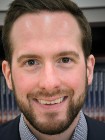
Dr Michael Lerch (Stratingh institute of Chemistry)
Tools Increasing Student Belonging Through Representation and Participation
Traditional science curricula are too often not inclusive enough, discouraging students from bringing their diverse backgrounds into their learning environment. The premise of this project is for students to feel involved and represented, allowing them to identify more with course content. By developing a course that portrays chemists from non-traditional backgrounds, students have the opportunity to identify with chemistry role models. At the same time, they are challenged to work problem-solving in teams in the chemistry escape games offered.

Dr Frans Bianchi (Groningen Biomolecular Sciences and Biotechnology Institute)
In charge of your own learning experience in skill-based practicums
Course evaluations show that first- and second-year BSc students often find laboratory classes demanding, slow and exhausting. This can make these lessons demotivating. In this project, the traditional two-week first-year biochemistry practical is extended to a three-week format in which students take on a more active role in designing the practical and making decisions throughout the process. Not just in the lab, but also during planning, reporting, and reflection. Multiple experimental routes are available, allowing students to create and follow their own plan within set deadlines. Throughout the project, they will continually justify and evaluate their choices.
2023
Teaching Fellows

Dr Pablo Druetta (FSE/ENTEG)
Improving the teaching of computational fluid dynamics courses in lecture rooms by means of virtual reality tools
Engineering students usually ask themselves these questions, while following any simulation course: why are the 2D images so small in the screen; and why is the lecturer showing a view, which is not helpful for your learning process. Though current CFD software have clearly improved the rendering and post-processing, this is not clear to see for all students in the same classroom. This project aims to tackle this problem by developing a virtual reality (VR) framework, which will help students to avoid asking these questions. Students then will be immersed in the same common environment and will be capable to have the same perspective, interacting and becoming active members of the learning process. Students will be able to follow the instructions by having a clear vision of, for instance, the fluid velocity field around a wind turbine. There is significant potential in extending this framework to other engineering-related courses, in which the visualization can be improved by VR tools.
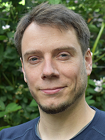
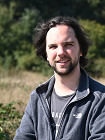
Dr Koen van Benthem and Dr Thomas Hackl (FSE/GELIFES)
Teaching coding effectively through interactive formative assessments
This project will provide a platform to students in the biostatistics courses where they can submit solution scripts. Upon submission, the platform will provide immediate automated individual feedback to the student. This will allow students to improve their analysis through multiple rounds of feedback, independent of teacher availability. Furthermore, it will allow teachers to adjust the course in real-time based on an analysis of the submitted scripts and associated feedback.
2022
Leadership Fellow
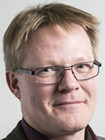
Prof. Jan Riezebos (Economics and Business)
Creating value of student diversity through logistical innovations.
Student diversity is the norm rather than the exception in teaching nowadays. Diversity should bring value to the learning process of all students. However, research indicates that it requires careful planning of lecturers to develop diversity into a valuable asset in the learning process of students. If poorly managed, diversity may result in tensions and reinforcement of prejudices among students. To make value of diversity, lecturers need both technological and pedagogical training and support. This project offers technological support for, a.o., inclusive group work through educational logistics, while pedagogical support is offered through inclusiveness trainings.
More about the grant for Jan Riezebos
Senior Fellows
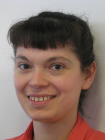
Dr Oksana Kavatsyuk (University College)
Let's WeBWork together: collaboration between faculty and students for successful blended/hybrid learning.
Blended-learning tools are not automatically sufficient for the students’ study success. Educational design that facilitates community building and collaboration between students is vital. We have developed a comprehensive strategy, encouraging community building and collaboration between students, aiming to humanize the online/hybrid courses, through building of trust, presence, awareness and empathy. Easy to follow step-by-step guide-lines for teachers will be produced, including a project website, instructions and instructional videos on humanizing (online/hybrid) courses and using WeBWork Open-Source platform for assignments. Students will be involved as co-creators and testers, gaining unique programming, communication and management experience.
Teaching Fellows
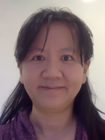
Dr May Lee (Science and Engineering)
Developing a framework to Optimize Existing Curricula for Hybrid Instruction.
Many students attend university to study STEM fields, but may not be able to afford tuition and boarding without having a job at the same time. Given the recent increases in undergraduate students enrolling in those studies, which often have large introductory courses that lack the physical space to accommodate them during lectures and tutorials, universities need to reconsider how those courses are organized; one solution is hybrid education. Our project proposes the development of a framework, based on research of effective teaching practices, that instructors can use to adapt their existing curricula for hybrid instruction.
Read more about the grant for dr Lee
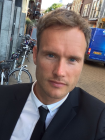
Dr Gerd Weitkamp (Spatial Sciences)
Measuring and Imagining Spatial Design: integrating geospatial measurements and virtual realities to support spatial skills of students in collaborative spatial planning and design.
Complex spatial problems in urban areas require the integration of knowledge from different perspectives to make informed urban design decisions. In this project we develop a teaching module including a Geospatialreality toolset, that enables the use of spatial data for designing an urban area informed by quantitative measurements of spatial features and subjective experiences in a Virtual Reality environment. The toolset will be interactive and dynamic: changes in the design will affect the quantitative measurements and the experience in VR. The module will learn how to create a design with iterative and collaborative methods, enabling a transdisciplinary approach.
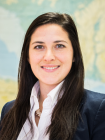
Dr Audrey Rousse-Malpat (Arts)
A multilingual approach for students from a broad language program.
As a language student, you probably recognize this problem: you want to major in French but most of the courses in your language program are offered in English. Yet, you are supposed to reach a high level in French during your bachelor's degree. This project aims to help you by offering a multilingual course in which you learn to understand each other's languages and cultural points of view, while you continue to develop the French language through strategies such as language comparison, interpretation and mutual understanding. A premiere in a university!
2021
Teaching Fellow
Dr Bharath Ganesh
Pixascope: Big visual analytics for social media
The project is dedicated to “Pixascope”, a software package for students and researchers to analyze large-scale visual datasets, like those that can be collected from social media platforms. Currently, much of the research on large datasets focuses on text, rather than images. This project hopes to give students the tools to use cutting-edge technology to analyze visual culture and enhance teaching and learning in RUG’s MA track in Social Media & Society. While visual platforms such as Instagram and TikTok are growing in prominence, education still prioritizes text. Pixascope hopes to change that by providing a new set of tools and an educational programme alongside them.
2020
Teaching fellows
Oksana Kavatsyuk
The project 'Gender inclusive education in the mathematics classroom' from dr Oksana Kavatsyuk focuses on exploring how all students regardless of gender could be encouraged to explore their talents to their full potential in the domain of mathematics.
Jolien Mouw
The main aim of the project 'Keeping order in a Virtual Kindergarten Classroom' by dr Jolien Mouw is to develop and evaluate an innovative and interactive Virtual-Reality kindergarten environment in which students of the Academic Teacher Training Program (AOLB) can safely experiment with different classroom management strategies.
Read more about the 2020 teaching fellows
2019
Senior fellows
Esther Hoorn (ABJZ)
'Privacy in Research: Asking the Right Questions'
This project aims to teach students how to ask the right questions about privacy by helping them look at privacy issues from various perspectives. Furthermore, it will develop an approach for successfully designing, implementing and embedding responsible research methodology in interdisciplinary research.
Jan Albert van Laar (Philosophy)
'Deliberative debating'
The UG is developing an app based on insights from argumentation theory and deliberation theory that helps students conduct a deliberative debate. Information gathering, consultation and the exchange of arguments are central to this. The app also allows students to experiment with self-designed discussion formats. The aim is to create widely applicable education modules, first for bachelor's and master's students, and then for students in secondary, secondary and higher education.
2018
Teaching fellows
Marjolein Deunk (BSS)
'Visual Thinking Strategies as a foundation for intercultural competence'
In the Visual Thinking Strategies method, students of Academic Teacher Primary Education discuss a work of art, in order to stimulate their awareness and a critical open attitude. They then similarly discuss a video recording of a reading session in a culturally diverse kindergarten class. The aim is to positively influence knowledge, attitudes and self-efficacy with regard to cultural-ethnic diversity in the classroom.
